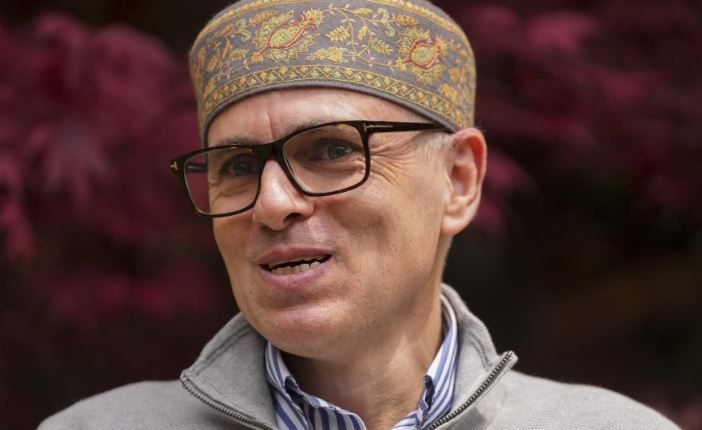Omar Abdullah Labels Dual Governance in J&K a “Recipe for Disaster”; Urges Immediate Statehood Restoration
New Delhi, Dec 14: Jammu and Kashmir Chief Minister Omar Abdullah has issued a sharp critique of the dual governance model in the Union Territory, where power is shared between the Chief Minister and the Lieutenant Governor. Abdullah described this arrangement as a “recipe for disaster” and renewed his call for the immediate restoration of statehood, urging the central government to honor its commitments.
In his first formal interview since assuming office in October, Abdullah expressed cautious optimism over statehood restoration, referencing repeated assurances made by Prime Minister Narendra Modi and Home Minister Amit Shah during their election campaigns. However, he underlined the inherent dysfunctionality of the current administrative setup.
“Having two power centers in governance is a model doomed to fail,” Abdullah remarked during an interaction with senior editors at PTI. “No organization thrives under divided leadership. Be it in sports or corporate settings, there is always one leader. Similarly, a state or region cannot function efficiently with dual authorities.”
Drawing parallels with Delhi, where the Chief Minister and Lieutenant Governor often clash over administrative control, Abdullah noted the far more significant challenges faced by Jammu and Kashmir. “Delhi is a small city-state. Jammu and Kashmir, on the other hand, is a geopolitically sensitive region bordered by China and Pakistan. It demands a unified command, not fragmented governance,” he asserted.
Abdullah lamented that in the two months since becoming Chief Minister, he has yet to witness any tangible benefits stemming from the region’s status as a Union Territory. “Not a single instance of governance or development has justified J&K’s Union Territory status. The so-called experiment has failed,” he said.
Jammu and Kashmir was stripped of its statehood and reorganized into a Union Territory in August 2019 following the abrogation of Article 370, which had granted it special constitutional status. The decision transferred significant governance powers to the Lieutenant Governor, reducing the role of elected representatives.
Abdullah’s National Conference swept the recent Assembly elections held in September after the Supreme Court directed the Election Commission to expedite the process. The party secured 41 of 90 seats, while ally Congress won six. The BJP claimed 28 seats, a sharp decline from its previous performance.
While the elections were held under the Supreme Court’s directive, Abdullah expressed dissatisfaction with the court’s stance on statehood. “The Supreme Court’s call for holding elections ‘as soon as possible’ had a clear timeline, but the same urgency wasn’t shown for restoring statehood. That ambiguity leaves us in a difficult position,” he said.
Abdullah criticized the BJP-led central government for not fulfilling its campaign promises. “The promise of statehood was not conditional. It wasn’t tied to electoral outcomes or specific leadership. People voted with the belief that their voices would be respected and statehood restored,” he said.
He urged the Prime Minister and Home Minister to fulfill their responsibilities, emphasizing that the ultimate decision rests with them. “Only two people—the Prime Minister and the Home Minister—can decide when and how statehood will be restored. They have made promises to the people of J&K, and it’s time to deliver,” Abdullah said.
Acknowledging the challenges of transitioning from Union Territory to full statehood, Abdullah described the current setup as a “work in progress.” He highlighted ongoing efforts to redefine administrative boundaries and clarify responsibilities between the Lieutenant Governor and the elected government.
“While the Lieutenant Governor oversees police, security, and law and order, other administrative duties are under the elected government’s purview. We are working to streamline the governance structure and refine business rules,” Abdullah explained.
Abdullah cautioned that prolonged delays in restoring statehood could erode public trust and faith in democratic processes. “The people of Jammu and Kashmir came out to vote with the hope of regaining their dignity and rights. The BJP-led government must honor that sentiment,” he warned.
He also hinted at having a contingency plan should the restoration of statehood remain elusive, though he refrained from divulging details. “I’d be naive not to have a backup strategy. But for now, I’d like to believe the promises made to the people will be honored,” he concluded.
Abdullah’s remarks reflect the mounting pressure on the central government to address growing discontent in the region, as demands for statehood and accountability gain momentum.




